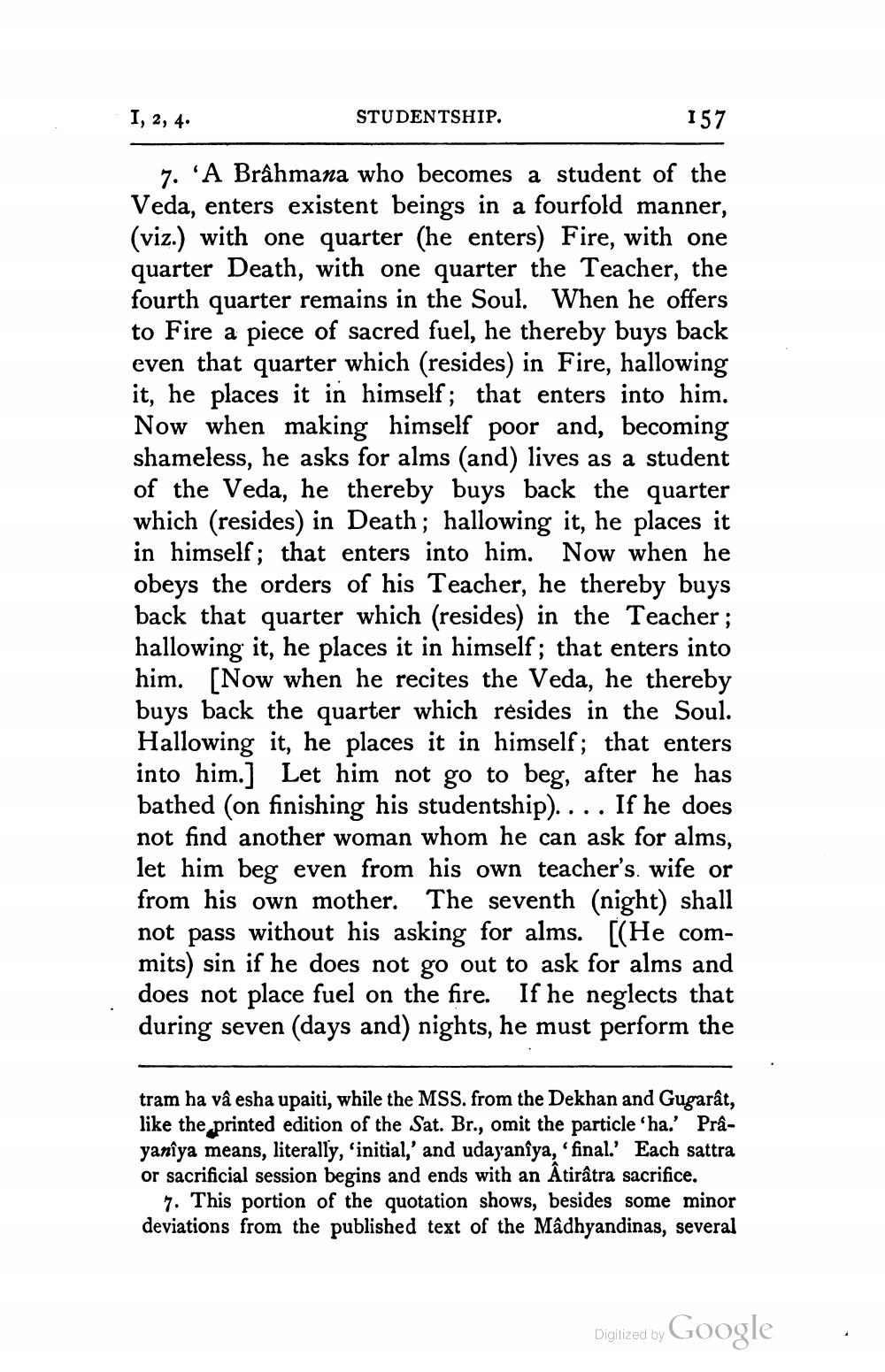________________
1, 2, 4.
STUDENTSHIP.
157
7. 'A Brâhmana who becomes a student of the Veda, enters existent beings in a fourfold manner, (viz.) with one quarter (he enters) Fire, with one quarter Death, with one quarter the Teacher, the fourth quarter remains in the Soul. When he offers to Fire a piece of sacred fuel, he thereby buys back even that quarter which (resides) in Fire, hallowing it, he places it in himself; that enters into him. Now when making himself poor and, becoming shameless, he asks for alms (and) lives as a student of the Veda, he thereby buys back the quarter which (resides) in Death; hallowing it, he places it in himself; that enters into him. Now when he obeys the orders of his Teacher, he thereby buys back that quarter which (resides) in the Teacher ; hallowing it, he places it in himself; that enters into him. [Now when he recites the Veda, he thereby buys back the quarter which resides in the Soul. Hallowing it, he places it in himself; that enters into him.] Let him not go to beg, after he has bathed (on finishing his studentship).... If he does not find another woman whom he can ask for alms, let him beg even from his own teacher's wife or from his own mother. The seventh (night) shall not pass without his asking for alms. [(He commits) sin if he does not go out to ask for alms and does not place fuel on the fire. If he neglects that during seven (days and) nights, he must perform the
tram ha vâ esha upaiti, while the MSS. from the Dekhan and Gugarât, like the printed edition of the Sat. Br., omit the particle ‘ha. Práyanîya means, literally, 'initial,' and udayanîya, 'final.' Each sattra or sacrificial session begins and ends with an Atirâtra sacrifice.
7. This portion of the quotation shows, besides some minor deviations from the published text of the Mâdhyandinas, several
Digitized by Google
Digitized by
.




